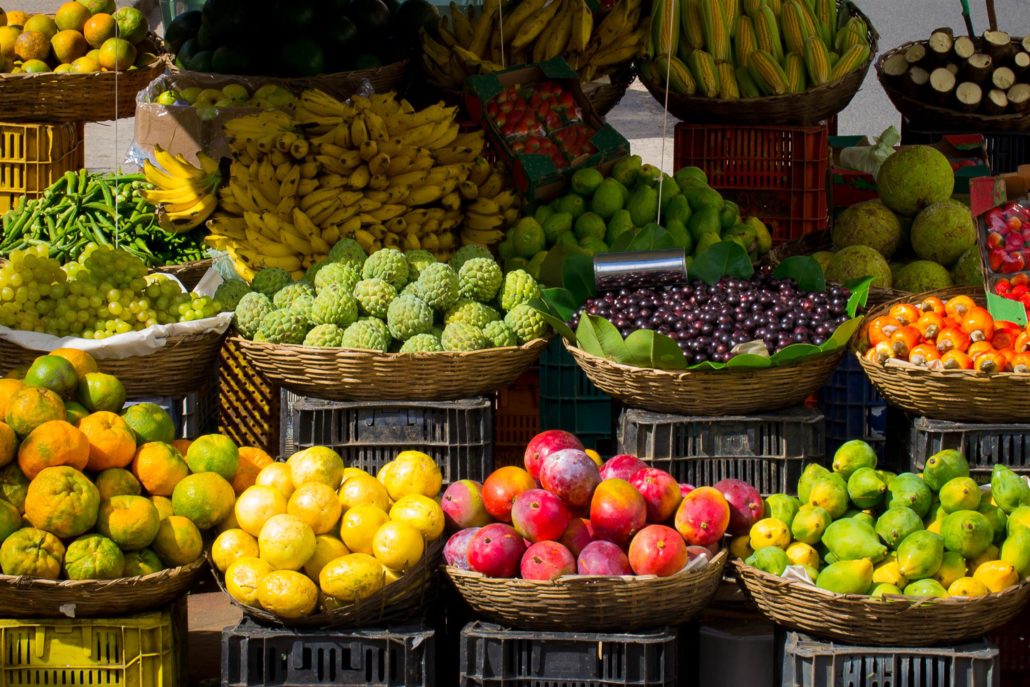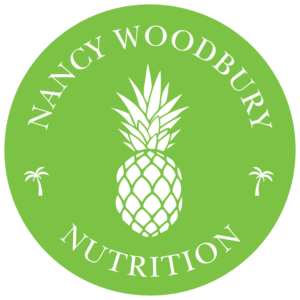
What is a plant-based diet?
Plant-based diets emphasize nutrient-dense, whole plant foods such as fruits, vegetables, grains, legumes, nuts and seeds, and minimize highly-processed foods, added sugars, sodium, artificial colors, food additives, and non-nutritive sweeteners. A predominantly plant-based diet may occasionally include small amounts of meat, poultry, fish, dairy and eggs, while a 100% whole-food, plant-based diet would not include any foods sourced from animals, including honey made by bees.
Two plant-based diets that research has found improve health outcomes include:
1) A 100% whole-food, plant-based diet comprised of grains, legumes, nuts, seeds, fruits, vegetables, and minimally processed foods. This diet should be distinguished from a vegan diet, which may include highly-processed foods filled with isolated soy protein, coconut oil, gums, additives and sodium. Carbohydrates are metabolized into glucose, the preferred fuel source for our muscles and brain. Whole plant foods are the primary source of dietary carbohydrates bundled with beneficial fiber, vitamins, minerals, disease-fighting antioxidants, phytochemicals and healthy essential fats.
2) The M.I.N.D. Diet (Mediterranean-D.A.S.H. Intervention for Neurodegenerative Delay) is a well-researched hybrid of two evidence-based diets: the Mediterranean Diet and the D.A.S.H. Diet (Dietary Approaches to Stop Hypertension). The M.I.N.D. Diet emphasizes foods from both diets that promote optimal brain health and reduce the risk of Alzheimer’s disease. This primarily plant-based diet recommends a specific number of servings of greens, berries, legumes and other nutrient-rich carbohydrate foods. The M.I.N.D. Diet also includes small amounts of fish and poultry, while minimizing intake of meat, cheese, butter and added sugars.
What you should know before switching to a plant-based diet
For optimal health, a plant-based diet should be filled with nutrient-dense, whole foods such as legumes, grains, nuts, seeds, fruits and vegetables. Don’t become a “junk food” vegan who eats highly-processed snack foods and faux meat products that are high in sodium and unhealthy additives.
Nutrients to focus on for plant-based diets
Many people who consider transitioning to a plant-based diet believe that giving up meat, fish, poultry and eggs will make them protein-deficient. Most plant foods contain the essential amino acids that make up protein, so protein deficiency is rare if you eat a variety of plant-based foods like lentils, beans, nuts, seeds, quinoa and tofu, and consume adequate calories to meet your energy requirements.
Pulses, which include dried beans, peas and lentils, are packed with plant-based protein and iron, which is required to transport oxygen in the blood. Unlike carbohydrates and fats, excess dietary protein is not stored in the body, so we need to eat foods that contain protein every day. Pulses also provide folate, which prevents neural tube defects, calcium to promote bone health, antioxidants that prevent heart disease, and fiber, which slows digestion, reduces blood sugar and lowers the risk of diabetes.
Leafy green vegetables, such as spinach, collard greens and kale, contain lutein and beta-carotene, carotenoid antioxidants that may prevent cataracts, glaucoma, heart disease and cancer. Greens are rich in nitrates that are converted to nitric oxide, which dilates blood vessels to reduce blood pressure, prevent atherosclerosis and fight inflammation. Kale, cabbage and mustard greens contain powerful phytochemicals that support ongoing liver detoxification and prevent the growth of cancer cells.
Nutrients of concern on a 100% plant-based diet include iodine, zinc, calcium, selenium, riboflavin, vitamin D, omega-3 fatty acids and vitamin B12. Your physician can order blood and urine tests to determine whether you have any nutrient deficiencies and recommend appropriate supplements.
A whole plant food diet can provide most of these nutrients to varying degrees, but vitamin B12 is only found in foods sourced from animals. A shortfall of vitamin B12 can result in irreversible nerve damage, so it’s important that vegans have their vitamin B12 levels tested and take a supplement to stay healthy.
Take time to learn which plant foods will meet your nutrient needs. For example, you can find calcium in certain leafy greens, calcium-set tofu, figs, chia seeds, almonds, tahini, blackstrap molasses, fortified plant milks and orange juice.
How to eat a nutrient-dense, plant-based diet on a budget
It’s possible to eat a nutritious, plant-based diet without overspending at the supermarket. Purchase canned or dried beans and lentils, brown rice, quinoa, and nuts and seeds in bulk to save money. Choose fresh, seasonal produce for the best quality and price. In the off-season, don’t hesitate to buy frozen fruits and vegetables, which are packaged at peak ripeness and are often just as nutritious as fresh produce. One exception is cruciferous vegetables such as broccoli and cauliflower, which lose much of their cancer-fighting potential when a key enzyme is destroyed by cooking prior to freezing.
Inexpensive, plant-based foods include oatmeal, brown rice, quinoa, lentils, black beans, white beans, garbanzo beans, tofu, tahini, nut butters, bananas, broccoli, cauliflower and leafy greens. The best seasonal produce buys include berries and mangoes in the summer, squash and figs in the fall, citrus fruit in the winter, and asparagus and peas in the spring.
Use the Environmental Working Group’s “Dirty Dozen” list to determine which foods have the highest pesticide levels, so that you only purchase pricier organic foods when it counts. Apples and strawberries have high pesticide levels, so you might want to splurge for the organic ones. But thick-skinned foods such as bananas and avocados, and bitter vegetables such as kale and broccoli have innate pest-fighting power, so save your money and buy these conventionally-grown.
How to make plant foods taste delicious
Both dried and fresh herbs such as mint and basil, and spices such as ginger, turmeric, chili powder and cinnamon enhance the natural flavors of plant-based foods. Onions, garlic and shallots provide an aromatic base for soups and salad dressings. Brighten the taste of any dish with a squeeze of fresh lemon or lime, or a sprinkle of balsamic, red wine or apple cider vinegar. Vegetable broth is a healthy, low-fat alternative to cooking oil that also infuses its flavors into the foods you cook with it.
Omega-3 fats and safe seafood
If you follow a Mediterranean-style, plant-based diet that includes fish and seafood, be sure to purchase it from a reliable source. Only 2% of seafood imported into the U.S. is inspected, and fish is often mislabeled in supermarkets and restaurants. Fatty fish such as sardines and wild salmon provide DHA and EPA, the essential omega-3 fats, but fish also contains mercury and other contaminants, so it’s wise to limit your intake to two servings per week.
Whole Foods maintains high quality standards for both wild-caught and responsibly farm-raised seafood, with an emphasis on accurate labeling and protecting the environment. All wild-caught seafood is sourced from sustainable fisheries certified by the Marine Stewardship Council, or is highly-rated by The Monterey Bay Aquarium, creator of the handy Seafood Watch app and downloadable, regional consumer guides to buying healthy and ocean-friendly seafood, which I personally use and recommend.
